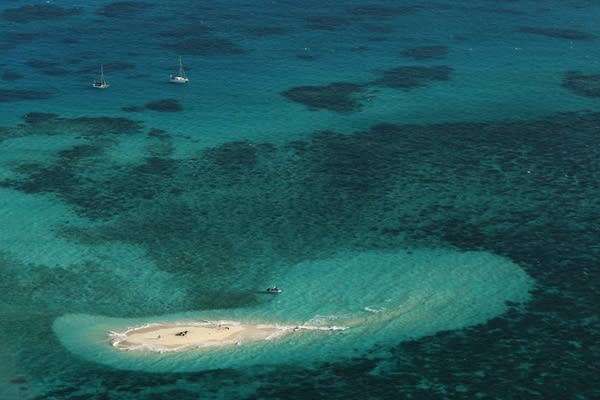Global warming's 'evil twin': acid oceans

An aerial view of Vlassof Cay in the Great Barrier Reef off Australia: Coral is threatened by increasing carbon levels in the oceans.
Mark Kolbe/Getty Images
Go Deeper.
Create an account or log in to save stories.
Like this?
Thanks for liking this story! We have added it to a list of your favorite stories.


